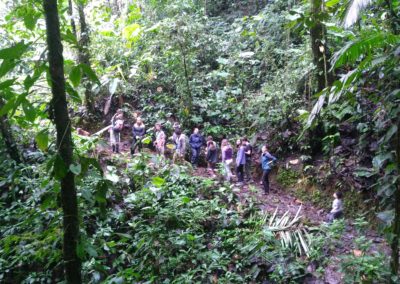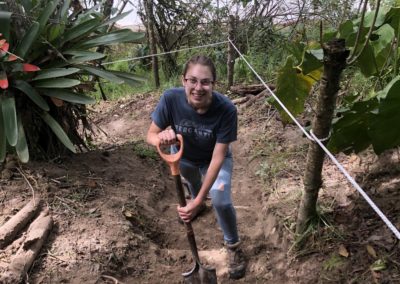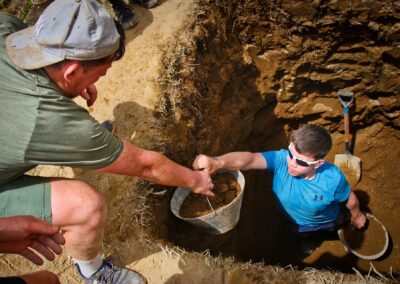ECOTOURISM, AGROECOLOGY AND COMMUNITY DEVELOPMENT
Work with this community, helping to develop economic and environmental alternatives that allow them to improve their quality of life without losing their principles, values and, above all, their sense of community.
The project
This project is a mixed rural community composed by 50 families, located an hour away from Quito. It is a group of people that work everyday in order to develop economic alternatives that allow them to improve their quality of life without losing their principles, values and, above all, their sense of community. In 1995 they began a process of community organization and conservation through a forestry project. The project was supported by NGOs and international cooperation, which also implemented sustainable productive activities such as organic gardening, small dairy processing factories, fruit for making jams and ecotourism.
A couple of years ago, with the support of other organizations, this location was declared to be in a protected area. In order to achieve conservation of this area in the long term, there has been no incentive for monocultures, the use of agrochemicals, logging, or mass tourism. Also, scientific research programs that help rescue the biological and cultural wealth of the area are projects that are promoted. Their main objective is to improve the quality of life of its people through the sustainable use of the natural resources of the area.
Dates/Length
Costs
2 weeks – $1750
1 month – $2300
2 months – $3400
3 months – $4500
Each extra week – $275
Location details
Requirements
Itinerary Sample
Mondays to Fridays
7:30 to 8:00 breakfast with their families
8:00 to 12:30 work in the different areas in the community such as agriculture, jams and dairy, manufacture of handicrafts, etc.
12:30 to 14:30 lunch time
14:30 to 17:30 keep working with the families; each activity will rotate weekly or daily.
18:30 to 19:00 dinner time
Role of the volunteer
Environmental Education: Volunteers are needed to support the development of an environmental education program for the child population in the community.
Forestry Research: You can also contribute heavily in the research of non-timber resources of the area (orchids, bromeliads, medicinal plants), or other aspects such as environmental services.
Organic gardening: You can participate in activities such as planting, cleaning, harvesting, and everything related to the maintenance and production of organic garden for women in the community. Participants will gain practical knowledge on organic agriculture.
Community: Your support in construction and maintenance of trails, camping area, recreation area, and composting systems will be appreciated.
Family Farms: Agricultural tasks and forestry (reforestation) at family farms. These activities are carried out with the participation of family members.
Mingas: Participants will be part of the so-called “mingas”. They area activities that involve to the whole community, whose objective is to perform works of common benefit
Dairy Processing and marmalade: Participants will learn and be part of the cheese process (made in a small dairy factory) and the marmalade production.
Eventually, volunteers have the option of participating in social events, sports and / or festivals that take place in the community.
Skills required
What’s Included?
Accomodation
Available during the length of the project (Either at the project or local homestay families with 2 meals included)
Transfer from Quito to project
Cellphone
Local cell phone is included with a refundable deposit of $50
Aiport pick-up
EcuaExplora staff ready to transport you
Support 24 hours
On the ground EcuaExplora staff available
First weekend accomodation
In a hostal in Quito with breakfast
Orientation
(includes city tour and lunch)
Not Included
Health insurance (REQUIRED)
Meals not specified
Transportation to/from the homestay to the project each day
Optional extras
Add $60 per week for 6 hours Spanish classes if in Quito.




